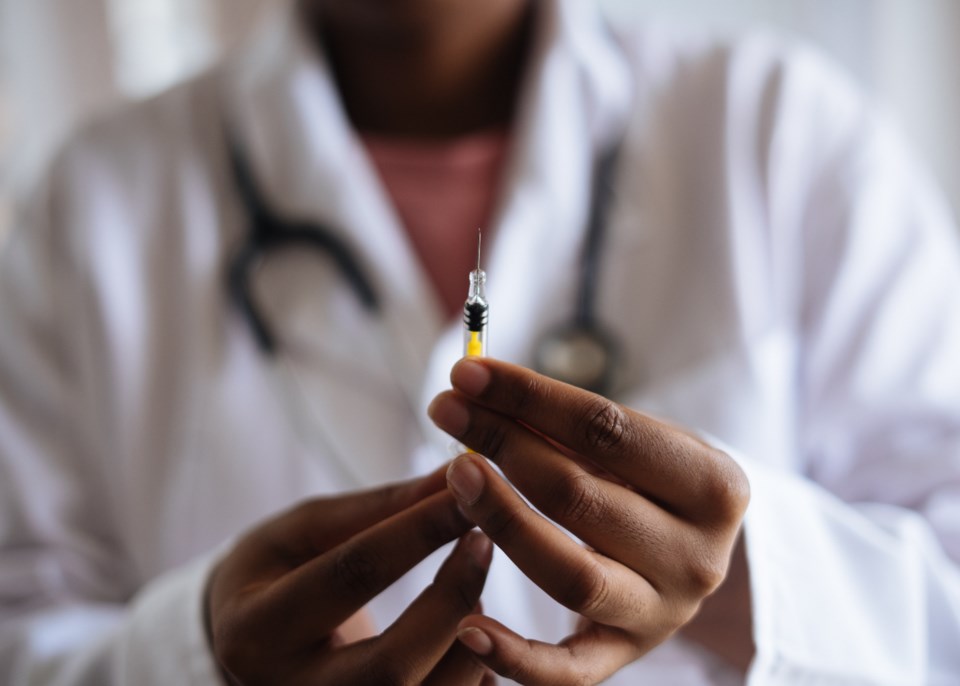York Region is among 13 hotspots identified by the province today to receive additional doses of the COVID-19 vaccine for residents aged 50 and older.
Up to 920,000 additional doses will be distributed among the public health units where more than 20 per cent of community-based deaths have occurred and COVID-19 rates are highest, according to the province.
Public health units will use their local knowledge and expertise to distribute the vaccines, as well as provincial data and information from the COVID-19 Science Advisory Science Table, to target “historic and ongoing areas with high rates of death, hospitalization and transmission.”
York Region has previously identified neighbourhoods in Vaughan and Markham as locations for vaccination clinics, where medical officer of health Dr. Karim Kurji has said 70 per cent of the region's faster-spreading variant cases are occurring in residents aged 20 and 70.
"In reviewing York Region data, we found hospitalizations are occurring for those in their 40s and 50s who seem to be residing in certain postal code areas including L4K, L4L, L6A and L4J in Vaughan and L3S in Markham," said York Region director of corporate communications Patrick Casey.
Starting Wednesday, April 7 at 8:30 a.m., residents aged 45 to 59 in those five postal code areas can book appointments through york.ca/COVID19Vaccine or by calling Access York at 1-877-464-9675.
Approximately 8,000 appointments will be available at from Thursday, April 8 to Monday, April 12 only at the Maple Community Centre in Vaughan and Aaniin Community Centre in Markham, Casey said.
Eligible residents are encouraged to book as soon as possible, he said, adding additional bookings will be made available as vaccine supply increases.
Additional postal codes identified by the province include: L0J, and L4H in Vaughan; L3T, L6B, L6C and L6E in Markham; L4B in Richmond Hill; and L4E in Richmond Hill/Gormley/Aurora.
Delivering vaccines to people who live in these areas is critical to reducing the impact of COVID-19 as quickly as possible, the province stated, and the Ministry of Health is working with public health units to ensure timely access at pharmacies, mass vaccination clinics, and mobile teams in certain postal codes.
The hotspot regions are:
- Durham Region Health Department
- Halton Region Public Health
- City of Hamilton Public Health Services
- Niagara Region Public Health
- Ottawa Public Health
- Peel Public Health
- Simcoe-Muskoka District Health Unit
- Region of Waterloo Public Health and Emergency Services
- Wellington-Dufferin Guelph Public Health
- Windsor-Essex County Health Unit
- York Region Public Health
- Toronto Public Health
- Southwestern Public Health
In addition, the province’s phase two of the vaccine distribution plan prioritizes individuals with the highest-risk health conditions.
With a steady supply of the COVID-19 vaccine expected from the federal government, more than nine million Ontarians will be offered their first vaccination between April and end of June 2021, Premier Doug Ford announced today.
"Thanks to the tireless efforts of our frontline health-care workers, we are getting needles in arms as quickly as possible and have now administered over 2.6 million vaccines," said Ford. "As soon as vaccines arrive our focus is turning to the communities hit hardest by COVID-19 and those with the highest-risk health conditions."
In addition, starting as early as April 6, individuals with the following highest-risk health conditions, as well as their caregivers, will be eligible for COVID-19 vaccinations regardless of their age:
- Organ transplant recipients;
- Hematopoietic stem cell transplant recipients;
- People with neurological diseases in which respiratory function may be compromised (e.g., motor neuron disease, myasthenia gravis, multiple sclerosis);
- Haematological malignancy diagnosed less than one year ago;
- Sickle cell disease;
- Kidney disease eGFR< 30; and
- Essential caregivers for individuals in the groups listed above.
The province is expecting to reach the majority of this group through hospital clinics by the end of April.
Patients in the highest-risk clinical groups will be contacted by their health-care providers to set up an appointment for a vaccination.
The Ministry of Health is working with Ontario Health, as well as networks like the Ontario Renal Network and other clinical organizations and vaccination partners, to identify and vaccinate these patients and their caregivers as soon as possible.

